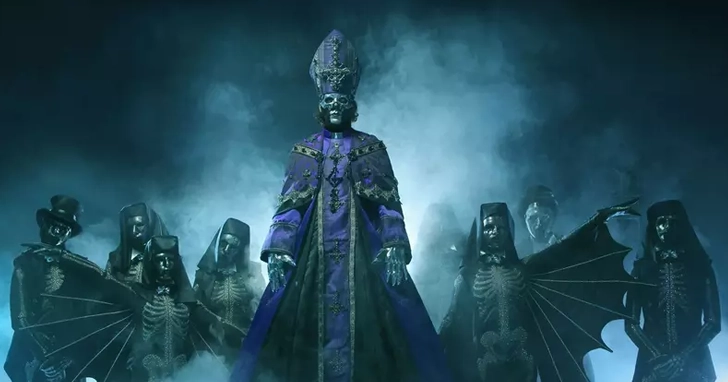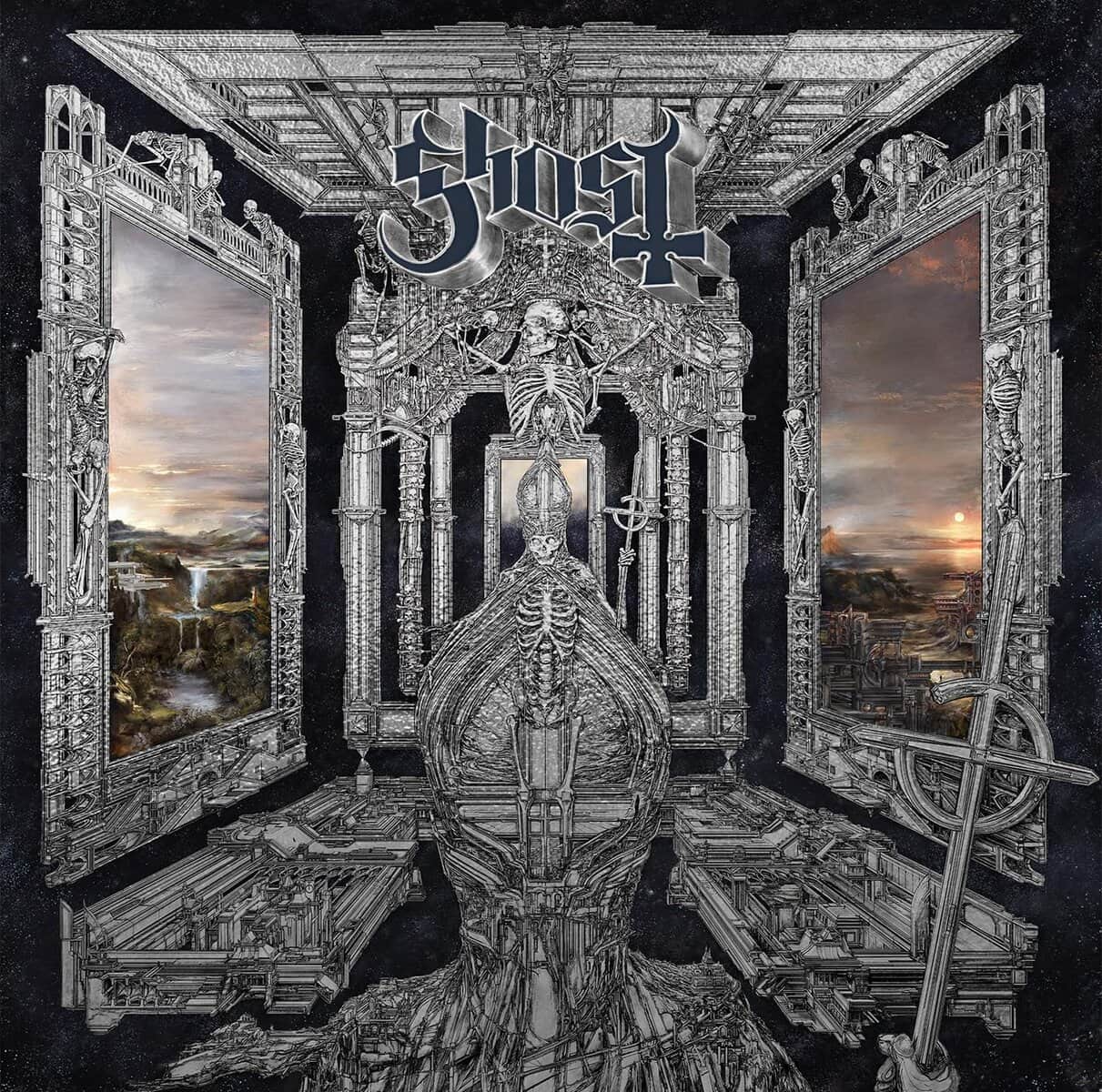Ghost have always stood out for their ability to blend heavy metal with theatricality and catchy melodies. Since their debut Opus Eponymous (2010), the band’s unique mix of Satanic imagery and infectious rock hooks earned them a dedicated fanbase. From Infestissumam (2013) to Prequelle (2018), Ghost carved a niche for themselves with a sound that was dark yet accessible, balancing heavy riffs with a sense of theatre and grandeur. Following Prequelle, the band’s sound began to shift towards a more stadium-friendly, polished rock style. Skeletá, their latest release, continues in this direction, further embracing this more mainstream, arena-ready approach.

This new album feels less like the sinister, heavy metal band we’ve come to know and more like a classic rock act. The first track, Peacefield, sets the tone for the album’s departure from their heavier roots. It opens with a haunting choral intro, quickly giving way to a smooth, radio-friendly rock tune. While polished and well-produced, it lacks the gritty, dark energy that defined earlier albums. Tracks like Lachryma and Guiding Lights follow a similar pattern, with slick, 80s-inspired melodies that wouldn’t sound out of place on a Bon Jovi or Journey record. The hooks are there, but something feels missing—a certain edge, an intensity that Ghost used to bring to the table.
In fact, many of the songs on Skeletá feel like they’ve been dipped in nostalgia, borrowing heavily from the classic rock sound. The melodies are catchy and polished, but there’s an underlying sense that the band is playing it safe. Guiding Lights is a prime example – catchy as it is, it’s more “dad rock” than the dark, daring anthems we’re used to hearing from Ghost. The album seems to be trying to appeal to a broader, more mainstream audience, but in doing so, it loses some of the distinctiveness that made their earlier work so compelling.
Even Missilia Amori, which has a bit of KISS-like swagger and glam rock energy, doesn’t feel fresh enough to elevate the album. It’s fun but also predictable, and ultimately, it’s just another moment that shows how much Skeletá is leaning into the safe, familiar side of rock. It feels like Ghost is retreating to comfort zones rather than pushing boundaries.
The closing track, Excelsis, is another example of this. It’s trying to be epic, a grand finale that ties the album together, but instead of feeling like a bold, new direction, it comes across as a tired rehash of their past work. The theatrics are still there, but they lack the punch and the freshness that Ghost used to deliver in spades. It’s an attempt at grandeur that ultimately feels hollow, as if the band is trying to recreate the magic of Meliora or Prequelle without quite hitting the mark.
The track Satanized truly saves the album, standing out as by far the best song on Skeletá. It’s the one moment where Ghost seem to return to their roots, blending the dark, theatrical energy that made their earlier work so compelling with their newer, more polished sound. The track has the punch, the swagger, and the sense of danger that’s otherwise missing from the rest of the album. It’s a rare highlight amidst a sea of safer, more radio-friendly tunes, and proves that when Ghost embrace their darker side, they can still deliver something truly captivating.
Skeletá is a well-produced album, and there’s no denying the band’s musical ability, but it lacks the edge, the darkness, and the excitement that made Ghost stand out in the first place. If you’re a fan of classic rock or enjoy polished, radio-friendly rock, you might find something to like here. But for those who loved the darker, more daring side of Ghost, Skeletá feels like a step backwards. It’s a decent listen, but it doesn’t push the boundaries or excite the way their earlier albums did.
Releasedate: 25-04-2025 | Label: Loma Vista Recordings | Instagram
Tracklist:
01. Peacefield
02. Lachryma
03. Satanized
04. Guiding Lights
05. De Profundis Borealis
06. Cenotaph
07. Missilia Amori
08. Marks of the Evil One
09. Umbra
10. Excelsis

